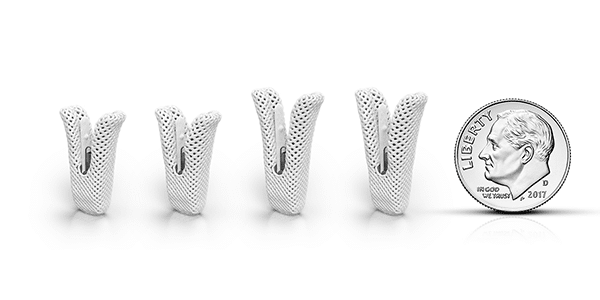People suffering from a heart condition called tricuspid valve regurgitation (TR) have a new option for treatment — the first of its kind in Georgia — at Georgia Heart Institute.
The comprehensive heart and vascular service line of Northeast Georgia Health System (NGHS), Georgia Heart Institute recently achieved another clinical milestone when its Structural Heart team successfully performed a minimally invasive transcatheter edge-to-edge repair (TEER) using a new TriClip device to treat a patient with TR. The new device is intended to improve the quality of life for patients with severe TR who may have otherwise needed a more invasive surgery. This was the first time the TriClip had been used in a non-trial U.S. commercial setting.
“We’re pleased to offer new hope to patients dealing with a leaky tricuspid valve,” said Ronnie Ramadan, MD, an interventional cardiologist and director of the Structural Heart Center at Georgia Heart Institute. “Georgia Heart Institute is committed to providing patients with access to the latest innovative therapies and the best care available, and offering this treatment option is just one way we’re doing that.”
Dr. Ramadan led the team that performed the TriClip procedure at Northeast Georgia Medical Center (NGMC) Gainesville.

“Historically, treating people with tricuspid valve regurgitation has been challenging,” Dr. Ramadan said. “Many of these patients are older and have other health conditions, so open-heart surgery is not a good option for them. This device gives those patients a new option, and we were proud to be the first site in the United States to perform this procedure now that it is available commercially.”
TR occurs when the tricuspid valve’s flaps do not close properly between the heart’s two right chambers — the right ventricle and right atrium. This allows blood to flow backward into the right atrium, causing shortness of breath, fatigue and other symptoms.
During a tricuspid TEER procedure, the TriClip device is delivered to the heart through a tiny tube — called a catheter — through a vein in the patient’s leg. TriClip is about the size of a dime. It clips together the tricuspid valve’s flaps to prevent blood from flowing backward. This helps the heart pump blood more efficiently, relieving the patient’s symptoms.

To learn more about minimally invasive treatment options for heart valve disease and other structural heart problems, visit georgiaheartinstitute.org/structural. To schedule an appointment with the Structural Heart Center, call 770-219-5242.
About Georgia Heart Institute
Georgia Heart Institute is the most forward-thinking heart and vascular program in the state and includes one of the largest cardiology practices in the region, including more than 80 practitioners seeing patients at more than a dozen locations. With a multi-disciplinary team of experts treating nearly every type of heart and vascular disease and participating in leading national research, we’re providing advanced care that ensures lasting heart health for generations. Request an appointment and learn more at georgiaheartinstitute.org.
The experts of Georgia Heart Institute also form the core of the cardiac care team at Northeast Georgia Medical Center’s five hospitals in Gainesville, Braselton, Winder, Dahlonega and Demorest. It’s all part of Northeast Georgia Health System, a non-profit which serves more than 1 million people across the region. Learn more at nghs.com.


